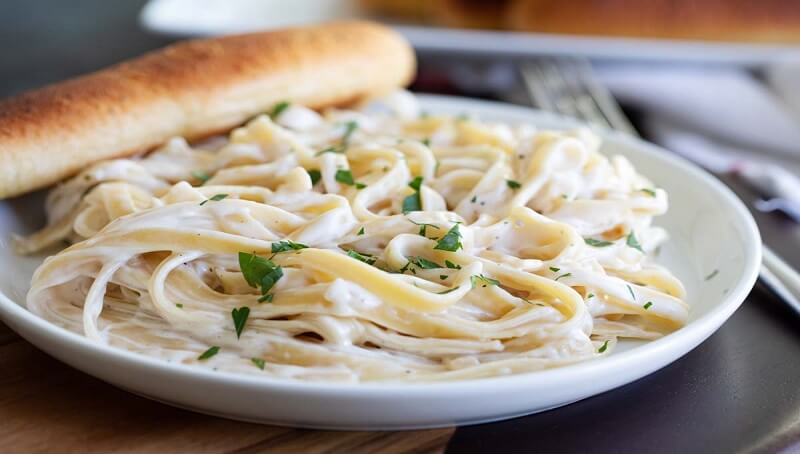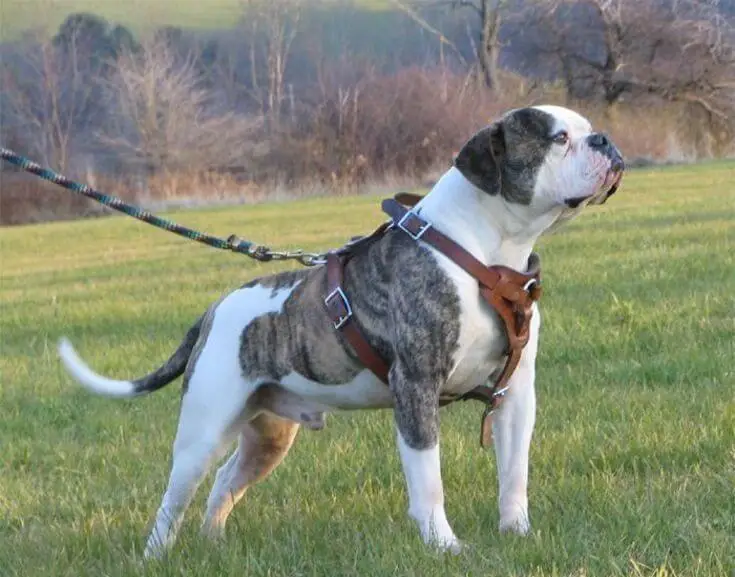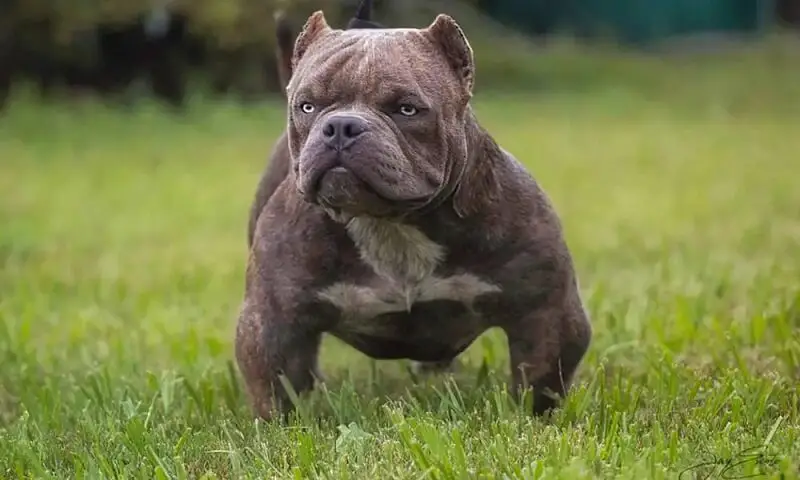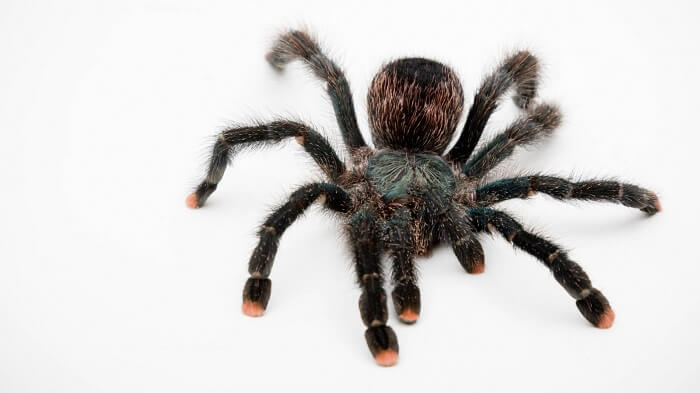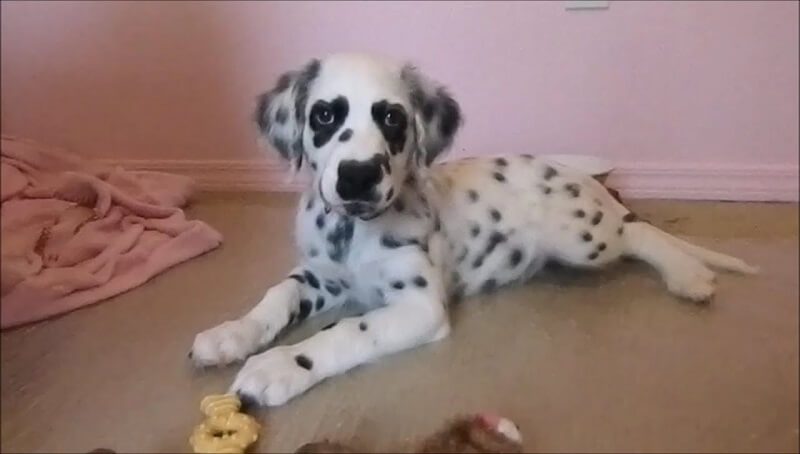You have surely heard of Alfredo sauce, the popular white source used for pasta and a lot of other related dishes all around the world. This very creamy sauce is made with butter, cheese, and heavy cream and is usually used in traditional pasta recipes. It will usually improve your pasta by making it more cheesy and creamy and giving it an amazing taste.
If you eat around your dog, you surely know its puppy eyes when it begs for some of your food. But when it comes to something made with alfredo sauce can you share the food with your dog? What if your dog ate some fettuccine alfredo?
Can your dog eat alfredo sauce?
The short answer is no, your dog should never eat alfredo sauce. It can have serious effects on your pet’s health, making it extremely sick and causing issues like a disturbed and malfunctioning digestive system. In fact, there are some very important reasons behind the harmful effects of alfredo sauce on a dog’s body.
If you have the patience to read the article in full, you will find out exactly why you should never give alfredo sauce to your dog and what issues it might cause if you did.
You might also like my articles on whether dogs can eat Nutella, basil, or figs.
So dogs can’t eat alfredo sauce. That’s cool, but why? There is a list of different ingredients and food recipes that are unsafe, or even full-on toxic for canine consumption. Some of the most common ingredients that are toxic for your dog are butter, chocolate, apple seeds, cheese, apricot pits, onions, avocados, garlic, and coffee. This list becomes a lot longer when you add all of the human foods that contain these toxic ingredients. To avoid building up a list of thousands of recipes, just refrain from ever giving your dog foods that contain any of the above ingredients. Eating these ingredients in any combination and cooked in any way will give your dog severe and sometimes permanent health issues.
Well, alfredo sauce is a party of toxic ingredients to dogs, being made with onions, garlic, and butter, all of which are a no-no for your dog. This means that you should prevent your dog from eating even a tiny bit of this sauce because it will have a horrible effect on its overall health.
If your dog has somehow eaten some alfredo sauce, then you should take immediate measures to prevent any long-term symptoms. The first thing that you should do is to take your dog to the vet as soon as possible, for a consultation and treatment if necessary.
Would dogs even like alfredo sauce?
Although dogs love any kinds of dairy products like cream, milk, butter, or cheese sauce, this doesn’t mean that these ingredients are good for them. In this way, dogs are just like humans who like to eat more things that their body actually agrees with.
Dogs don’t have an understanding of the dangers and health issues certain foods come with, so although your pet will eat alfredo sauce with great delight, it might be very bad for their general health. This is why you are the one responsible for keeping their diet in check.
Should dogs ever eat alfredo sauce?
A dog will only need around 12 grams of fat for every 30 pounds of weight, experts argue. The dog will very easily get this amount through its daily balanced diet and adding more will just cause all kinds of issues for the dog.
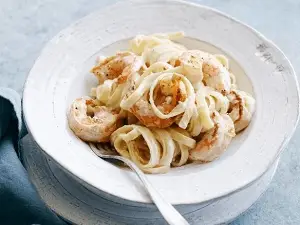 As you know, both cheese and butter have a lot of fats. Your dog will get too many fats from alfredo sauce even if the pet was on a fat deficit diet.
As you know, both cheese and butter have a lot of fats. Your dog will get too many fats from alfredo sauce even if the pet was on a fat deficit diet.
This is why I say that you should never give alfredo sauce to your dog, regardless of how much the pet begs and regardless of whether you consider it is getting enough fat in its diet or not.
You should never consider alfredo sauce safe for your dog, regardless of what you eat it with. The first thing you should keep in mind is that this sauce will include butter, which easily disturbs the digestive system of your animal. Heavy cream is also used, although in smaller quantities, which is also very hard on a dog’s digestion.
Another ingredient in it is cheese, which is usually made with insane amounts of salt, and salt is always an issue for dogs. It can even lead to salt poisoning in dogs. Cheese can also harm your dog’s health in the short term because it increases blood pressure above normal levels. Eating cheese will also come with long-term issues and would affect or even damage some organs beyond repair. It can easily cause heart disease or blood cell damage.
If your dog eats some or all of the ingredients used to make alfredo sauce, it will soon develop different kinds of symptoms. The most common ones you should prepare for will include:
- Higher Heart Rate
- Loss of Appetite
- Upset Digestive System
- Upset Stomach
- Constipation
- Irregular Bowel Movement
- Ingestion
- Gas
- Bloating
- Diarrhea
How often can dogs eat alfredo sauce?
As I already emphasized throughout this article, you should avoid giving your dog any amount of alfredo sauce, fettuccine alfredo, alfredo pasta, or even shrimp alfredo. I can understand that you might have a hard time resisting the dog’s puppy eyes and if you feel that you won’t be able to say no to your dog, then giving it just a cup of the sauce without any pasta or other ingredients should be the maximum to avoid any long-term issues.
If you have a choice, it would be better to give your dog plain pasta instead of the sauce, but if the dog insists on getting a bite of the alfredo sauce, at least keep the pasta away.
If your dog gets just a bit of alfredo sauce and you stop it from eating any more, then the symptoms might appear harder and they should be lighter, the dog experiencing only some mild bloating and indigestion.
In fact, alfredo sauce is on the list of the most harmful foods your dog could eat while in your home. Considering that just one cup of alfredo sauce could cause issues to the dog’s health, giving it considerably more or in daily doses could have a lethal outcome.
Will alfredo sauce cause issues to puppies as well?
Puppies have a very weak digestive system compared to adult dogs, which means that alfredo sauce would be a lot worse for them in terms of short-term and long-term effects. You should only give your puppy a balanced diet made of soft food that has no harmful ingredients.
